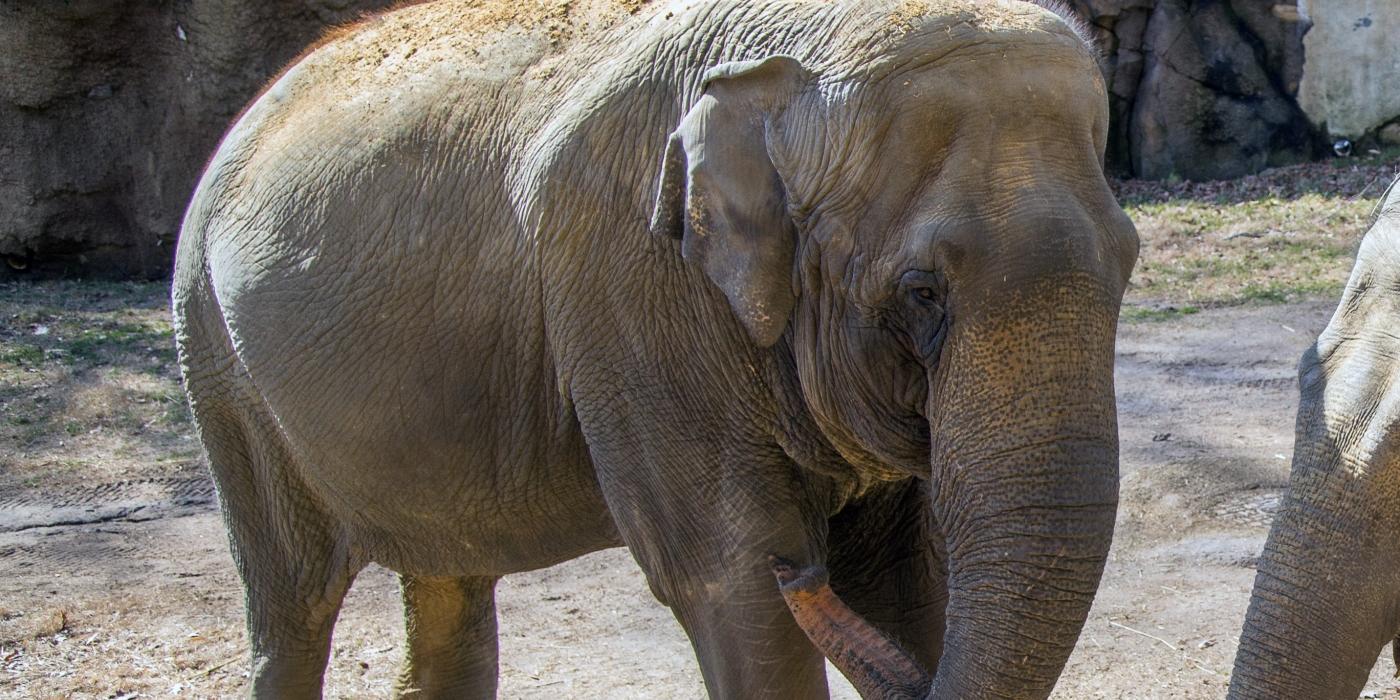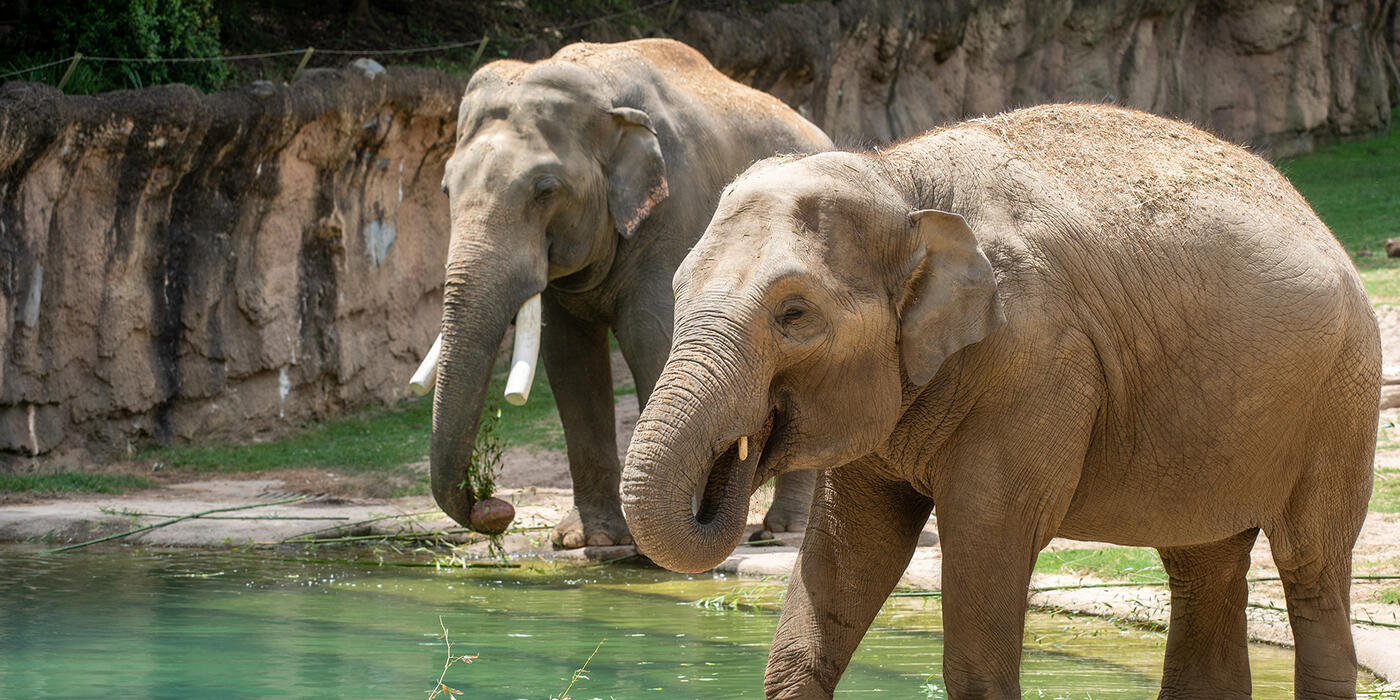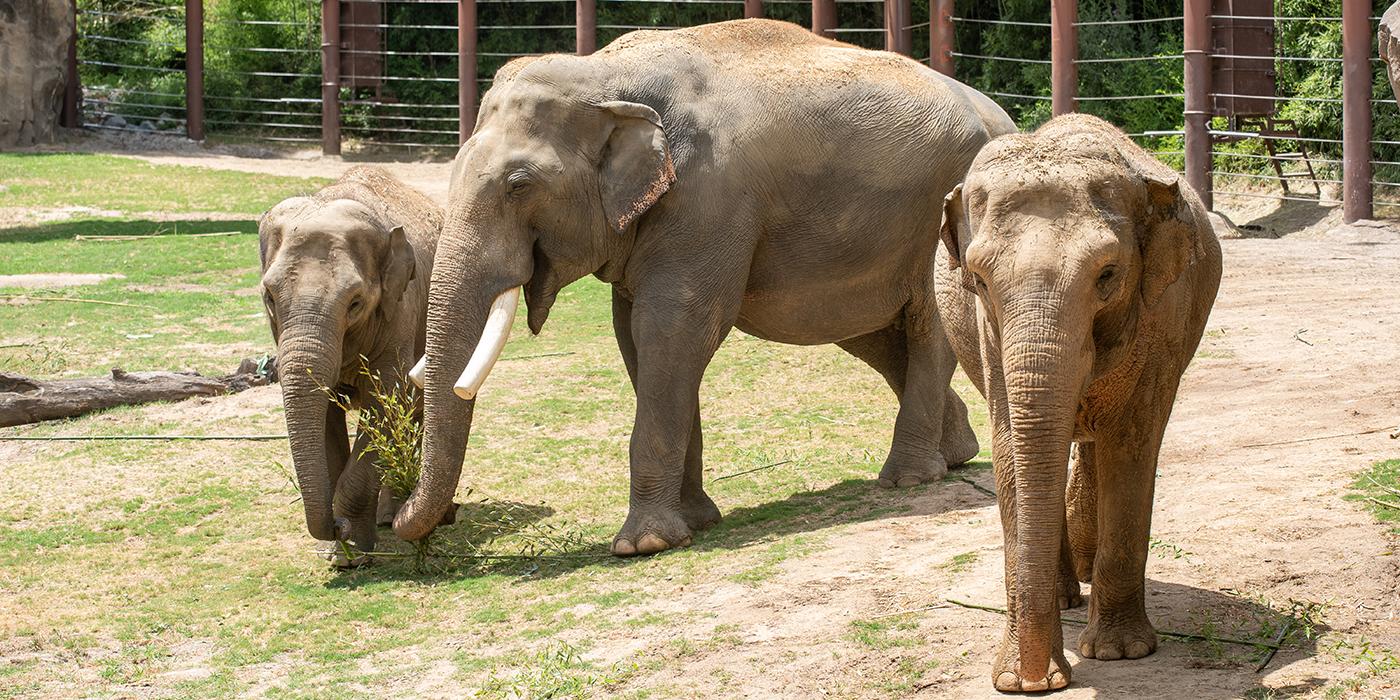Elephant Update: Caring for Shanthi
If you’ve been following along with updates regarding Shanthi’s arthritis care, you know the keepers and veterinarians have been treating the Smithsonian’s National Zoo’s 44-year-old Asian elephant with some of the latest technology animal science has to offer. But those treatments don’t seem to be helping as much as they did before. Shanthi first showed signs of osteoarthritis—similar to what any person with the same condition would experience: stiffness and pain in her joints—when she was in her teens. It’s most obvious in her carpi, or “wrists.”
During the summer and fall, the elephant team noted that Shanthi’s overall demeanor—from her appetite and activity level to interactions with her herd mates and keepers—largely remained static. Animal care staff had hoped they would see an upswing in some, or, ideally, all of these categories following a steroid treatment delivered into her joints. Instead, her response had been underwhelming. Of larger concern to the team was Shanthi’s decision to neither enter the pools nor lie down to sleep—activities that would help alleviate some of the pressure on her joints.
For now, the elephant and veterinary teams decided the best course of action is to manage Shanthi’s comfort using anti-inflammatories (ibuprofen) and analgesics (tramadol and gabapentin), as well as cosequin. Together they’ll monitor her for level of comfort, adjust medications as necessary and take blood and stool samples regularly to make sure she’s not experiencing any side effects from the medications.Shanthi still has a great appetite, participates in training sessions and socialize with her fellow elephants, but the animal care team continues to be concerned about the level of pain she is experiencing. In the last few months, they have seen Shanthi do a stretching behavior, which indicates that she is feeling tired and weak-kneed. Based on their observations of her overall movement and gait, radiographs of her joints and her reluctance to swim or lie down, keepers believe she is feeling pain more consistently now than she has in the past.
There is no cure for arthritis, but the elephant care and veterinary teams continue to make every effort to make her as comfortable as possible. They pay close attention to Shanthi’s behavior and make adjustments to her care as needed. Elephants thrive on routine and are often soothed by consistent structure, so the team continues to provide Shanthi with the same opportunities to explore her habitat, socialize with Ambika, Bozie, Swarna and Spike, and participate in routine training sessions. Despite her discomfort, Shanthi continues to show great interest in these activities, which provide her with an outlet for physical and mental exercise.
Related Species:



